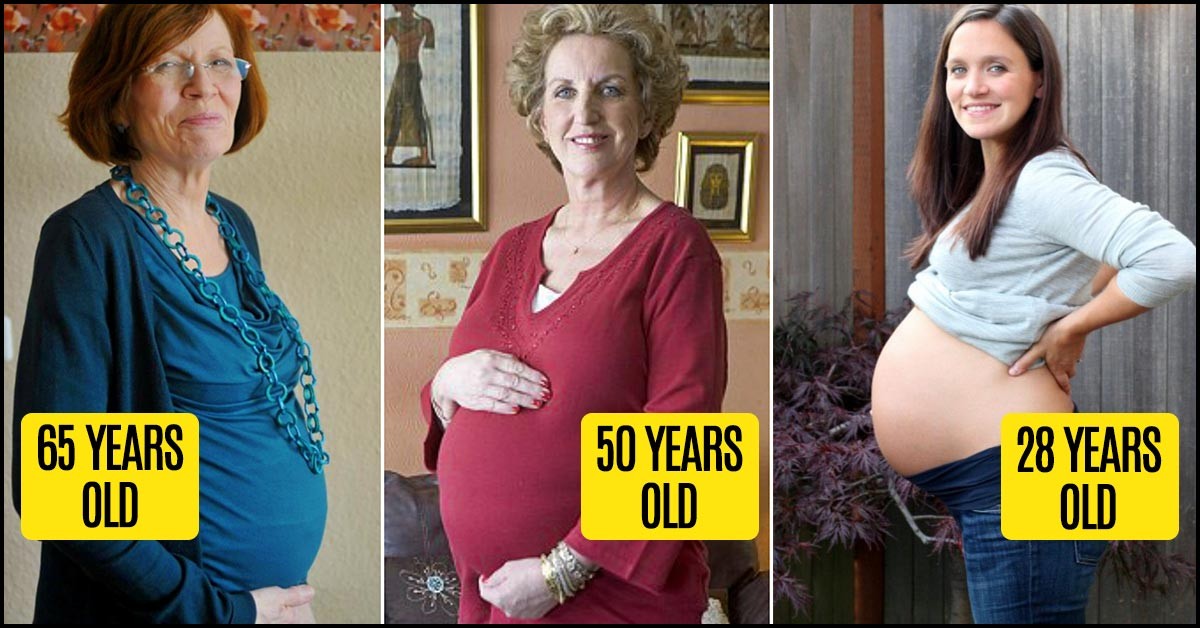
Contents
What Is the Oldest Age a Woman Can Get Pregnant Naturally?
Fertility declines with age. Women cannot get pregnant 5-10 years before menopause.
Stories of women giving birth in their 50s, 60s, and even 70s usually involve donor eggs and in vitro fertilization (IVF). There is no set oldest age for natural pregnancy, but fertility declines with age. Pregnancy is unlikely between 5-10 years before menopause.
Women are born with all their eggs, which decrease in number and are more likely to have abnormalities as they age. Older women are also more likely to develop disorders such as endometriosis, which can affect fertility. By age 45, natural pregnancy is unlikely.
After one year of trying, pregnancy chances by age are:
- 85% if under 30
- 75% at 30
- 66% at 35
- 44% at 40
What are the risks of getting pregnant when older?
Getting pregnant after 35 is considered advanced maternal age (AMA) and comes with additional risks for both mother and baby, including:
- Multiple babies
- Diabetes
- Birth defects
- Pregnancy loss
- High blood pressure
- Premature birth and low birthweight
Most pregnant women over 35 have healthy pregnancies, but specialized care may be required, such as:
- Counseling to discuss risks
- Increased prenatal visits
- Birth defect screening, testing, and counseling
- Specialist consultations
- Management of existing health problems
- Monitoring of baby’s growth and development
- Early screening and treatment of gestational diabetes and hypertension
- Planned delivery to avoid C-section if possible
To minimize complications:
- Avoid smoking
- Eat a healthy diet
- Avoid alcohol, illegal drugs, and excessive caffeine
- Manage weight gain
- Stay active
- Avoid infections and dangerous foods during pregnancy
Getting pregnant when older
Pregnancy is still possible when older, but it may be more difficult. Fertility depends on ovarian function and overall health. Regular ovulation and healthy eggs increase the chances of natural conception within a year. Testing ovarian function early can determine the chances of natural conceiving.
If conception doesn’t happen after six months using the "gunshot" method (sex every other day during the middle third of the cycle), alternative options like IVF may be considered.
Benefits of being an older mom
While getting pregnant may be harder when older, there are advantages to being an older mom for both the mother and baby, including:
Healthier preschoolers with better language skills: Preschoolers born to older mothers are healthier, have increased immunization rates, fewer hospitalizations, and better language skills.
Increased intelligence when older: Women giving birth after 35 tend to score higher on thinking and verbal memory tests.
Better parenting skills: Older moms have more patience, discipline children less harshly, set better boundaries, and have children with fewer behavioral and emotional issues.
QUESTION
How is a woman’s fertility tested?
For successful conception, both partners’ fertility should be tested if attempts to conceive are unsuccessful for a year or more. Females can undergo various tests.
Testing is recommended after one year of unprotected sex without pregnancy. Early testing may be necessary if:
- 35 or older
- Experience irregular or skipped menstrual cycles
- Have issues with the uterus, tubes, or abdominal cavity
What fertility test should I take?
Approach fertility testing by analyzing potential factors and involve your partner. Start with less invasive tests and tailor testing to your unique situation, medical history, and time frame.
Initial steps and tests may include:
- Medical history discussion with healthcare providers
- Physical exams including pap tests and pelvic exams
- Urine tests to check hormone levels
- Blood tests for ovarian reserve and hormonal levels
- Testing for sexually transmitted infections
- Home urine tests for temperature fluctuations and menstrual information
If the cause of infertility remains unclear, additional tests may include:
- Pelvic ultrasound to assess uterus and ovaries
- Hysterosalpingogram to check fallopian tubes
- Sonohysterogram to visualize the reproductive system
- Laparoscopy to examine the pelvic area
If infertility remains unexplained, further tests may be considered:
- Antibody blood tests to detect antisperm elements
- Chromosome or genetic testing for specific disorders
- Hysteroscopy to examine the uterus lighting
Original sources:
The American College of Obstetricians and Gynecologists: "Having a Baby After Age 35: How Aging Affects Fertility and Pregnancy."
American Pregnancy Association: "Fertility Test for Women."
BMJ: "The health and development of children born to older mothers in the United Kingdom: observational study using longitudinal cohort data."
European Journal of Developmental Psychology: "Associations between older maternal age, use of sanctions, and children’s socio-emotional development through 7, 11, and 15 years."
ReproductiveFacts.org: "Diagnostic Testing for Female Infertility."
Texas Children’s Hospital: "Advanced Maternal Age."
Tommy’s: "What happens if I’m pregnant over the age of 40?"
University of Michigan Health: "Infertility Tests."
Upsala Journal of Medical Sciences: "Knowledge about the impact of age on fertility: a brief review."
University of Missouri: "Planning a Pregnancy After 40."


